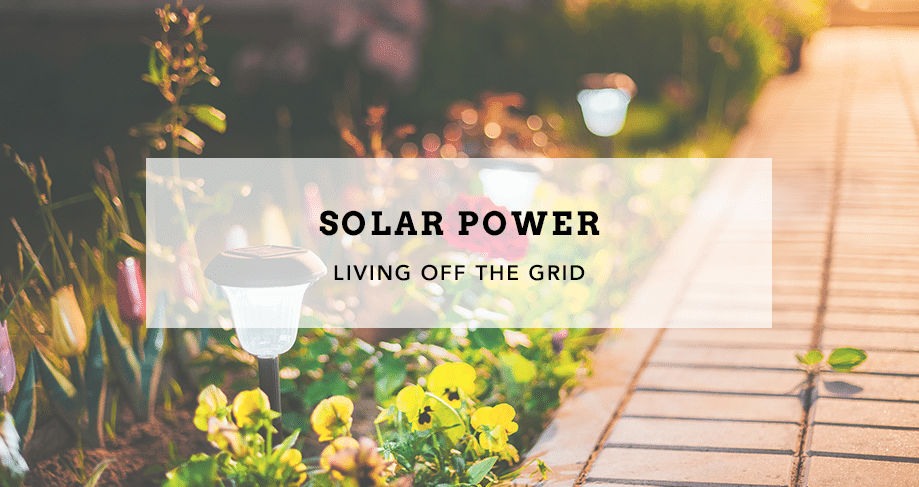Solar Power – Living Off the Grid
Now that you’ve you’ve purchased your dream property by direct land sale, you’d like to live off the grid by using solar power, an energy source available to anyone, anywhere. Here are things you need to know about setting up a solar powered system.
What Is a Solar-Electric System?
A PV (photovoltaic) module or solar panel is the energy collector of the system. It makes electricity from sunlight and is simple, effective, and durable. PV systems have no moving parts, so they are also reliable and require little maintenance. Adding panels increases energy output, so it is advised to purchase additional panels as soon as you can afford to. Other components you may need are:
- Battery Bank – Stores solar-electricity during times there is no direct sunlight such at nighttime and winter months. Batteries will last longest if regularly charged in full, they should never be completely discharged and/or left in that state. It is ideal to fully recharge batteries every few days, even if you need to use a backup source to do so.
- Charge Controller – Protects battery bank from overcharging.
- Inverter – Converts the DC PV array power to AC for household appliance usage
- Solar Tracker – Optional, but allows solar array to follow the sun’s trajectory and can increase system output by approximately 20% or more. Any required disconnects, monitoring, and associated electrical safety equipment.
Set Your Goals
How you intend to use electrical power will affect the type and components of your system. You must determine how you will live with a solar-electric system, it’s benefits, limitations, and responsibilities in order to make it work for you and meet your everyday energy demands. Be realistic in the amount of time, attention and money you are willing to spend. Off-grid system owners have all the responsibility of generating all energy used on the property all the time.
First, determine your load analysis. Electrical consumption is measured in kilowatt-hours (kWh), and you will need a fairly accurate daily or monthly amount. Use your current electrical bill if possible and identify where you can conserve or change your electrical usage habits.
Second, you will need a resource assessment to see how much sun your location actually has, which is measured in peak sun hours. Use data from a regional resource and a shade analysis tool to get an idea. Your battery bank size and needs for a backup source such as a gas-powered generator are influenced by loads, as is the amount of energy used daily and when it is needed. Remember to take into account and plan for off seasons like winter, but solar power systems can be designed to overcome variations in use and allow for any load at any time.
A solar-electric system can allow you to live off the grid to fit your lifestyle and dream property location. Contact Hurdle Land and Realty to learn more about our land for sale by owner and our land-buying process.






